I met a man two years ago, chicken bussing his way across Guatemala, who was investing a few months learning Spanish so that he could hike up a river into an unreached tribe mission to work building schools and teaching kids. We invited him to dinner. He became a good friend, and we’ve traveled with him and followed his adventures ever since.
Last winter Phil went to Mali and assembled windmills to help remote villages gain access to clean water. You might be interested to know that he’s just turned nineteen. He was 17 when we met him: done with his schooling, well versed in a trade, traveling and doing humanitarian work on his own dime.
“He was 17 when we met him: done with his schooling, well versed in a trade, traveling and doing humanitarian work on his own dime.”
What would you say if I told you we let our daughter go backpacking “alone” with a group of other teenagers in Belize when she was just 14? Or that she spent six weeks in Europe riding trains with her boyfriend at 17? And Greyhounding the USA just before she turned 18?
What if I told you that our oldest son funded his own trip half way across the country to go live and work on a hydroponic farm (he wants to go into agriculture) for a month when he was just 13? The other interns were college students; he was the only teenager. Or that at 17 he crossed the Mediterranean and Atlantic under sail with a group of young people, without us?
“…we let our third child, at 15, plan and execute his first solo trip: a month to Guatemala, completely on his own.”
Would you think I’m a terrible parent for sending my four kids, aged 10-16, out into the streets of Chiang Mai, Thailand, alone, at night on a “sibling date?”
Do you think it’s irresponsible that we let our third child, at 15, plan and execute his first solo trip: a month to Guatemala, completely on his own. No program, no adult in charge, just the boy and his dedication to feeding malnourished kids in a village he loves? He did it on his own dime, without one single problem.
Does that make us “bad parents” in your book?
I know it does in some people’s eyes; we get a little negative feedback on those points from time to time. But here’s the thing. We aren’t aiming for “average” with our kids. “Average” looks like bored at the mall, texting and sexting until the wee hours, experimenting with substances and personalities like they’re hats that can be changed with the day’s outfits, teen rebellion, and apathy. We’re going for results more like we saw in our buddy Phil – young people full of drive and determination, vision and values, channeling all of it to change the world and live large.
Extraordinary People Are Rarely the Result of Average Circumstances
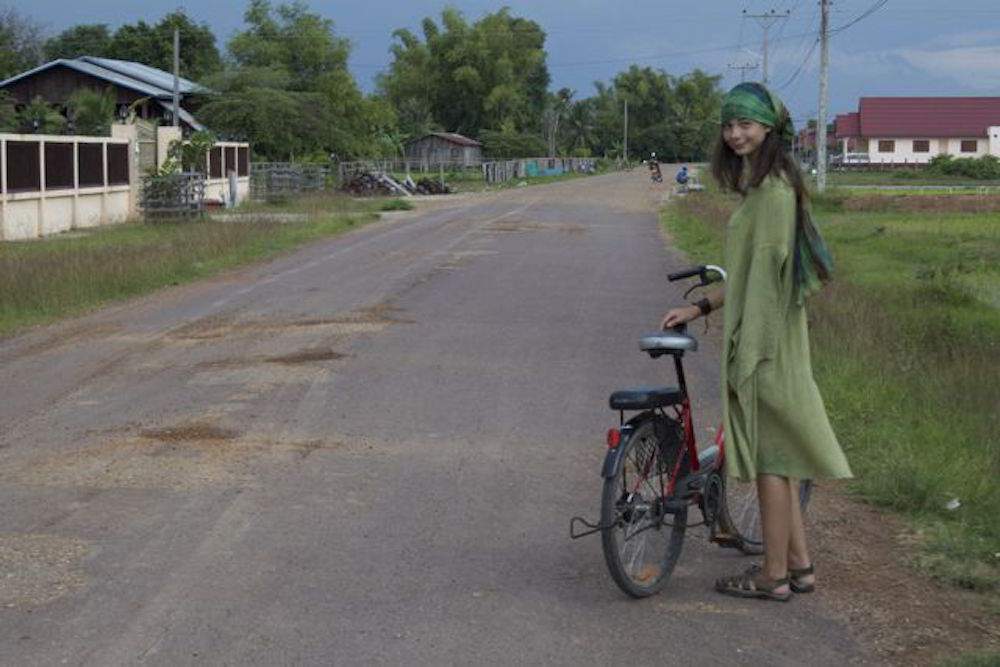
I would like to submit that teens are capable of more than we give them credit for, even those of us who give them a lot of credit. Historically, kids were off living their own lives, working, raising families, building businesses and empires by the time they were 15 or 16. The extended adolescence that’s become popular in the past century sells kids very short and steals from them some of the best, most productive years of their lives. We add insult to injury by actually legislating against them, with the best of intentions, and “for their own good,” of course.
This drives my kids crazy! In my version of a perfect world, there would be a completely level playing field, teens could compete in the adult market, if they had the chops, and they would be free to pursue their dreams and passions in a productive way. 18 is not a magic number, after all.
“When fear drives our parenting, the last thing we tend to extend to our children is freedom. Without freedom, our children cannot grow and learn, test the waters, and mature properly.”
American parents, and those of many other countries as well if we want to be fair, are caught in a death grip of fear. This fear is spoon fed to us by the media. Why? Because fear sells, and we’re a consumer driven society. When fear drives our parenting, the last thing we tend to extend to our children is freedom. Without freedom, our children cannot grow and learn, test the waters and mature properly. In spite of our fears, our children must learn to operate with wisdom within the real world, and the only way that happens is by trial and error. We can’t (and shouldn’t) bubble wrap them forever.
Would you like to know what I think the antidote to teenage rebellion is? Freedom.
But, I think most people have it backwards: they extend their little kids complete freedom when they don’t have the self-control to use it wisely, then spend the ‘tween and teen years trying to reel those kids back in. The kids, naturally, rebel. Instead, why not provide the tighter boundaries to keep little ones safe and teach self control and good decision making so that by the time their wings are flapping, they’re truly ready to fly?
Take Calculated Risks
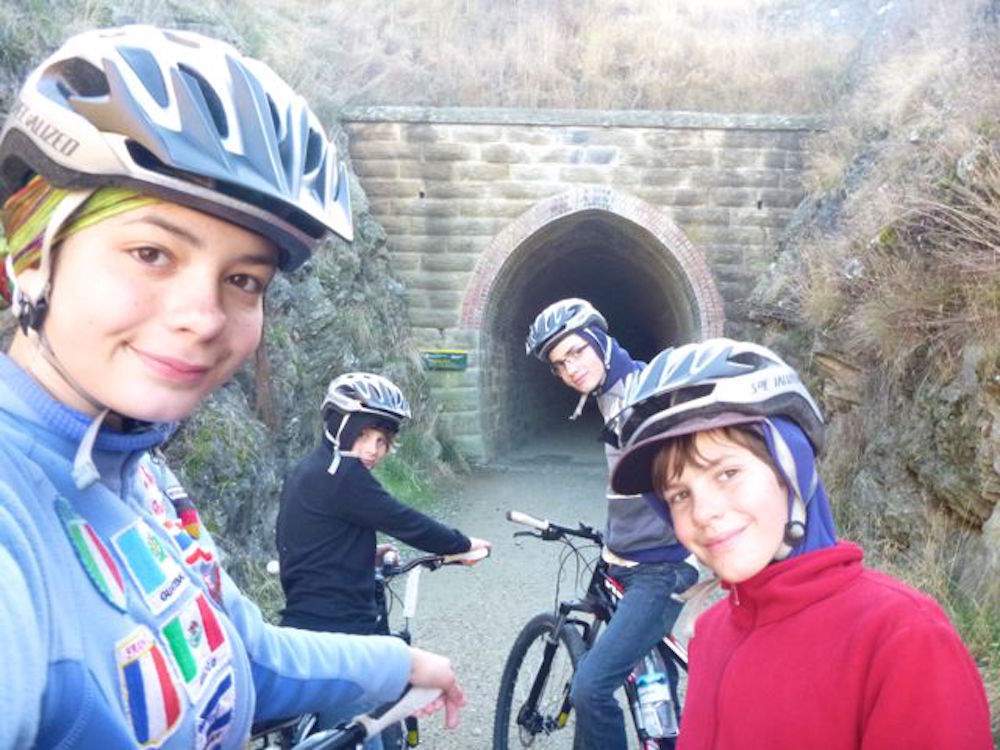
We can’t control everything; we’ve already established that. Just because some nut-job shot up the opening of a movie in Colorado doesn’t mean we should ban movie attendance for our kids, right? The antidote to fear is factual information. Armed with the statistical realities of the overwhelming safety of the world, it is much easier to watch your 14-year-old cross her first international border alone. Even knowing she plans to teach her young friends how to hitchhike in the back of pick-up trucks, Central American style, and rejoin you on a far off island when she’s had her fun.
“Step back from fear and allow your children the freedom to take some calculated risks, just like you do.”
Armed with the historical perspective of the lives of some of the early blooming “greats” of generations past, it’s easier to send a 13-year-old off to pursue his passion on his own time and his own dime. Could his plane crash? Could his arm get ripped off in a hopper? Of course. Is that less likely to happen if I go with him and hover? No.
Step back from fear and allow your children the freedom to take some calculated risks, just like you do.
Have Some Faith in Your Parenting
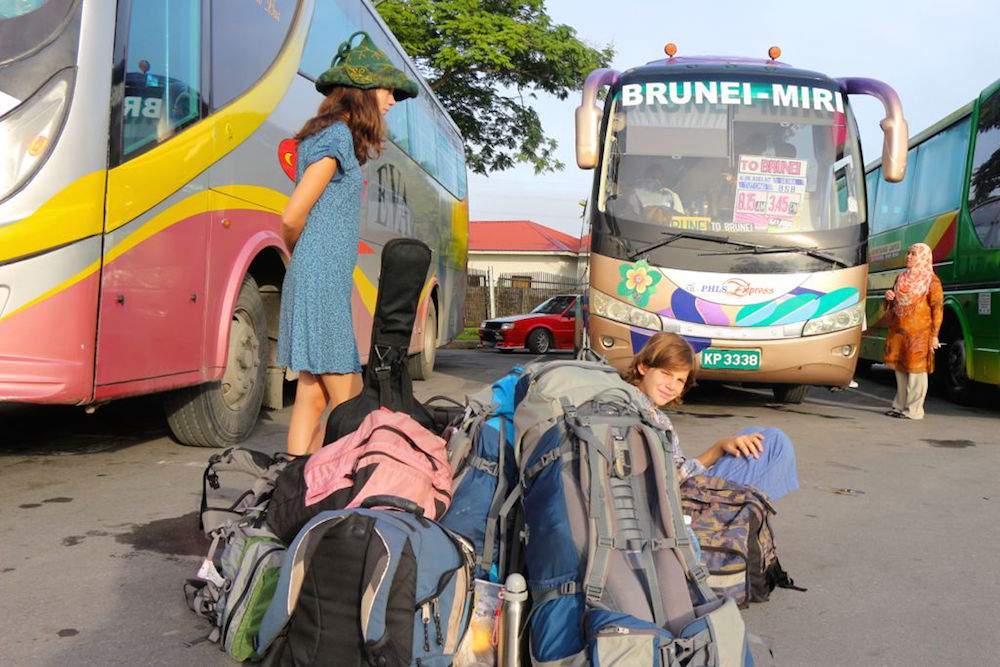
You’re a great parent. I know you are. You’ve done your level best from day one. Your kids know this about you. They appreciate it, even if they aren’t saying so right now. It can be scary to hand the reins of a precarious life (especially one so precious to you) to a human not yet old enough to have perspective on either of those things, but it must be done. The sooner the better.
“Remember, we’re raising adults here, not kids.”
If you’ve done your job as well as you know you have, then your teen is going to fly. There will be bumps, a few crash landings, but in the end, they’ll soar. Wouldn’t you rather have those bumps happen while they’re still within your reach to help pick up, dust off, and move forward instead of when they’re gone for good? I know I would.
Remember, we’re raising adults here, not kids.
Expect the Best
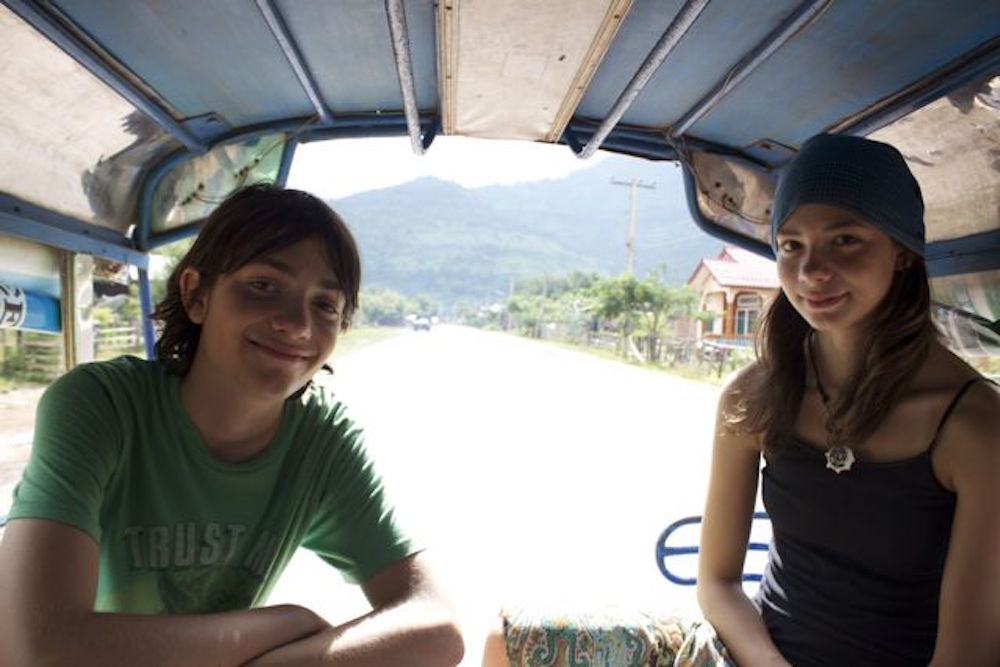
It is an unfortunate aspect of our parenting culture that we expect the very worst from our kids from day one: Sleepless nights followed by temper tantrums, followed by ignoring us and tuning us out, followed by eye rolling, followed by teen rebellion. Just listen to the dire warnings dished out to new parents and see if it isn’t so. Are you familiar with the Pygmalion Effect? Basically, it boils down to this: You get what you expect.
“Communicate to your teens that you expect them to be young adults, to take responsibility, to manage their freedoms well, to do great things, to find their passions and follow them, to work hard and enjoy the benefits of their labor.”
So why not expect the best? Communicate to your teens that you expect them to be young adults, to take responsibility, to manage their freedoms well, to do great things, to find their passions and follow them, to work hard and enjoy the benefits of their labor. See what happens. I have this theory that much of the apathy we see in teens results from them being convinced that nothing they do really matters, that they just have to wait out these boring few years until their “real life” starts.
What would happen to a kid if you handed him his life right now? What if you emancipated her in most senses, became her biggest cheerleader, applauded her wildest efforts, and threw the weight of your experience and financial stability behind her passions?
Let Them Go
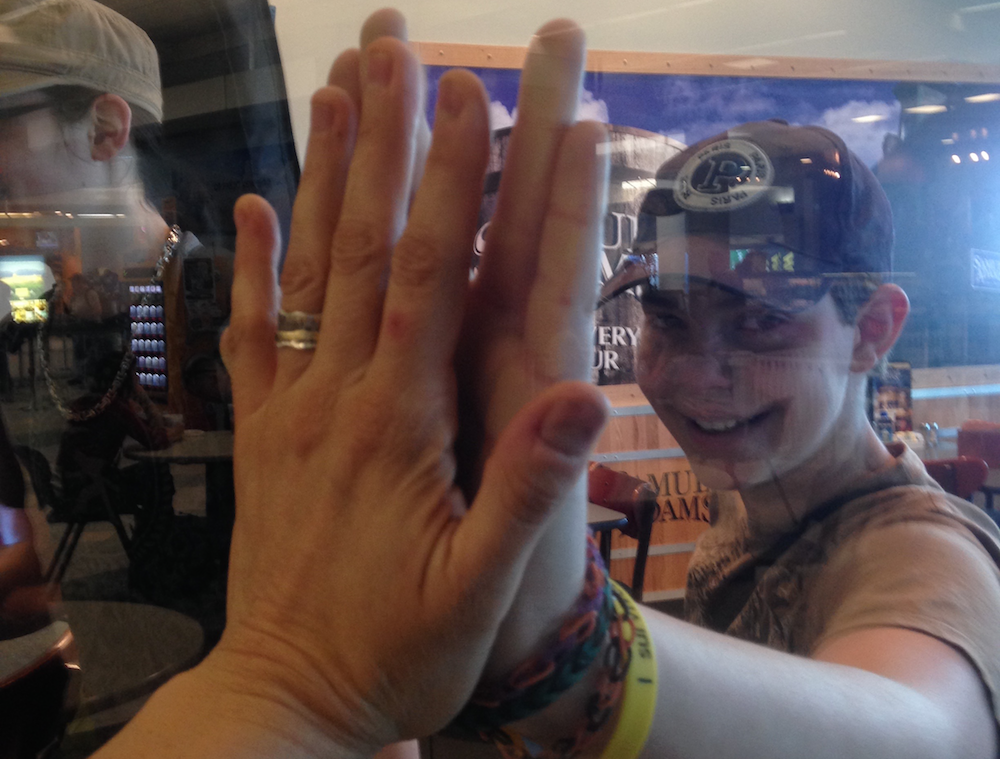
Here’s a newsflash: Your kids are on a one-way trip from the day they are born: Straight out of your arms and into the world. They are going, whether you like it or not.
So you have two choices: Let them go, encourage them to go, celebrate their going, and you’ll find that they take you with them in big and small ways. Or, try to hold them back, fight their passions, and they’ll shake you off and go anyway. Look around and see if that’s not true.
Which approach did your parents take?
Tips For First Adventures
Start Small & Start Young
Let them go to the park alone in grade school. Let them ride their bikes to school and the grocery store. Let them take the bus or train around town in the double digits. Let them fly between grandparents without the “unaccompanied minor” status as soon as possible.
Travel Together
Kids learn more from watching you than from any number of words you speak. How will they learn to love adventure: by you loving adventure and taking them with you.
Take Precautions
Make sure they have the skills they need, the resources they need, and the safety nets in place. Technology makes this so much easier than it was for my parents when I took my first solo trip to Europe at 16. Prepaid credit cards, debit cards, cell phones, travel insurance, first aid and CPR certification, legal permission slips, and appropriate ID are all aspects of being appropriately prepared.
Discuss Contingencies
Kids off on their own adventures should know how to get themselves home if it all goes to hell in a hand basket. The “what to do if…” conversations need to start young and be thoroughly ingrained. If my husband and I went out on a date on our motorbike when we were all living in Thailand and didn’t return by morning, my teenagers know exactly what to do to:
- Find us and find out what happened (we talked about what that meant)
- Get their young siblings back to the half of the world where their financially viable adult alternatives reside.
Do your kids know what they need to, regardless of whether you travel or not?
Freedom & Responsibility
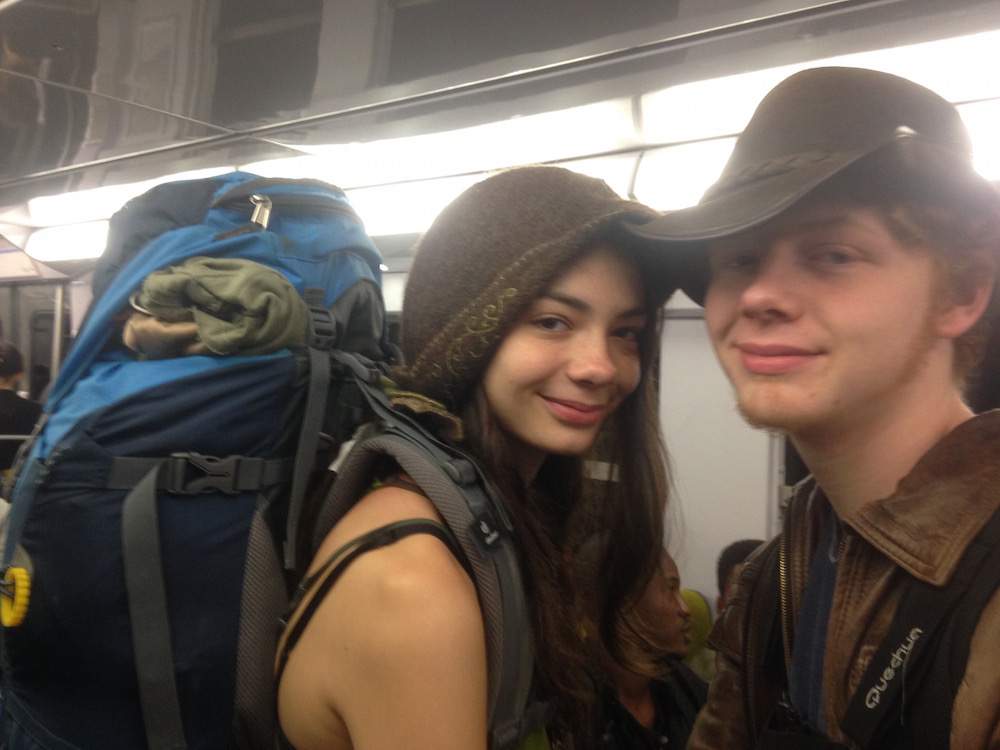
It’s a balance. Every human, regardless of age and lifestyle, has freedoms commensurate with her demonstrated ability to be responsible with them. If you don’t manage the freedom to drive responsibly, you lose your license. Teens need to have a firm grasp on this delicate balance.
Adulthood is not about “doing whatever you want” – it’s about “doing what you can for the good of yourself and those around you.” If your teen isn’t responsible, he won’t ever be free, regardless of whether he turns 18 or not. It has been our experience and observation that when teens are most free they are most responsible, and when children are expected to be responsible very early, their teen years are characterized by freedom and some of the most amazing experiences and accomplishments of their lives.
“Adulthood is not about “doing whatever you want” – it’s about “doing what you can for the good of yourself and those around you.””
I can hear the comments rolling in already:
“But you haven’t met MY kid… Most teens aren’t able to handle that…. Have you BEEN in a high school lately? You are NUTS to let your kids…. But they’ll be exposed to drugs-sex-rock ‘n roll…”
You’re right. There are exceptions. Teens are people, we can’t paint them all with one brush. Not all kids would rise to the occasion (but to be fair, how will we know until we give them the chance?)
“I may be nuts, time will tell, but my Dad has always said that the best approach to kids is to ‘treat them as much like adults as they can stand,’ and he was the best parent I know of.”
I have not been in a high school lately. The kids I tend to encounter are the exceptional ones, and maybe that’s why I have such hope for future generations and the capacity of young people to make the very best of their young lives if we let them.
I may be nuts, time will tell, but my Dad has always said that the best approach to kids is to “treat them as much like adults as they can stand,” and he was the best parent I know of. He let me do all sorts of “crazy” stuff “too young.” As a result, I swapped continents under my own steam at 16 and moved internationally to attend university a year earlier than all of my peers. I always knew I could do anything I put my mind to, and guess, what? Even as a kid, I did. We’re at least third generation crazy on this front in our family.
And yes, they’ll be exposed to things you don’t like. They’re even going to try things you don’t like. You probably did, too, remember?
“Raising your kids in a pumpkin shell and then tossing them into the real world at 18 is a mean thing to do.”
Raising your kids in a pumpkin shell and then tossing them into the real world at 18 is a mean thing to do. Raise them in the real world and let the pumpkin shell be a place they can come and go from as they need to.
When I first wrote this article my oldest was 17 and the boys were 15, 13, & 11. Now, I have a nearly 20 year old and downstairs from there. Phil, the young man we met adventuring in Central America, si now 22 and has taken over his parent’s business in Iowa, risen to foreman of a team on an oil rig, and continues to lead the charge of his generation. As my oldest two have flown the nest and the younger two are flapping their wings like crazy on their test flights I’m becoming an even bigger believer in an open-handed approach to the teen years and the most loving push from the nest that we can give our young people.
We all know the old quote about the two most important things we can give our kids: Roots and Wings.
We’re all pretty good at the roots part – let’s be brave enough to give them the wings too!
Check out the following articles about family travel:







